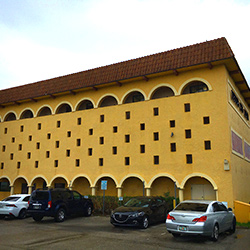 Success Stories: Overcoming Alcoholism with Antabuse
Success Stories: Overcoming Alcoholism with Antabuse
Understanding Antabuse: How It Supports Recovery
Antabuse, a critical player in the recovery scene, works by creating a strong aversion to alcohol consumption through its unique mechanism. By inhibiting an enzyme involved in metabolizing alcohol, this compound medication triggers unpleasant reactions when alcohol is consumed, effectively deterring its intake. This immediate, tangible consequence helps patients rethink their choices, affirming sobriety as a rational decision. Here's a brief view of how Antabuse interacts with alcohol:
| Enzyme Action | Result when Alcohol is Consumed |
|---|---|
| Inhibition of Acetaldehyde Dehydrogenase | Flushing, Nausea, Headaches |
Moreover, Antabuse's effectiveness is amplified in a supportive environment, where its prescription, alongside professional counseling and therapy, creates a holistic recovery strategy.
Inspiring Journeys: Real-life Success Stories

In a moving transformation, John's narrative illustrates the tough road to recovery. After years trapped in a cycle of addiction, he sought guidance from a compassionate doctor, not a candyman. With the help of a carefully managed script of Antabuse, John found himself able to confront his cravings head-on. This wasn't an overnight success; it demanded a strong support network and a commitment to his prescribed sig.
Meanwhile, Emily's story highlights the power of Antabuse in providing the necessary elixir during her darkest days. Encouraged by friends and family, she immersed herself in structured recovery programs. The red flag moments were frequent, yet her resolve, coupled with Antabuse's deterrent effect, helped her reclaim control. Both stories demonstrate the transformational potential of Antabuse in the journey towards sobriety.
The Science Behind Antabuse and Its Effects
Understanding the intricate workings of Antabuse involves delving into its unique comp: disulfiram. Once in the system, Antabuse halts the breakdown of alcohol, causing an immediate aversive reaction when alcohol is consumed. This reaction can include symptoms such as nausea, flushing, and headaches, serving as a powerful deterrent for many. The journey to sobriety can often feel like a stat race, battling against the clock of cravings and temptations. By utilizing Antabuse, individuals create a physiological barrier that overlaps with psychological resolve. While there might be side effects, akin to a temporary hangover, the strategic use of Antabuse within a structured treatment plan offers hope for those committed to recovery.
Overcoming Challenges: Tackling Alcohol Cravings

Navigating the rocky terrain of alcohol cravings is a critical step in recovery. Antabuse can serve as a powerful ally, acting like the elixir that deters the craving before it spirals out of control. Imagine the journey of recovery as a series of strategic moves, where you have to outsmart the cravings with each step. With Antabuse, the script often changes, empowering individuals to turn away from the urge to drink. However, no single solution is the magic bullet. It requires concerted effort, combining medical support, robust routines, and the supportive embrace of a dedicated network, like a reliable white coat team, committed to every recovery milestone.
Building a Support System for Lasting Change
Creating a robust support system plays a pivotal role in sustaining recovery from alcoholism, especially when using Antabuse as part of the treatment plan. By incorporating the right people and resources, individuals can navigate their way past the initial hurdles of sobriety. Support groups, both online and offline, offer a vital compounding of real-life insights and emotional reinforcement, helping individuals to remain resilient against cravings and relapses.
Engaging regularly in these environments fosters accountability and provides a platform for sharing progress, setbacks, and strategies — like "count and pour" sessions, where experiences are exchanged and collective wisdom gained. Family and friends' involvement, acting as a small community of "pharm techs," can further fortify this network, ensuring you're never alone on your journey.
Strengthening these connections leads to long-term benefits that extend beyond your immediate recovery. They encourage positive behavioral changes and promote a meaningful, sober life post-recovery. Here's a summary of some key components that contribute to building an effective support system:
| Component | Role |
|---|---|
| Support Groups | Provide shared experiences and accountability |
| Family & Friends | Offer emotional support and encouragement |
| Therapists & Counselors | Guide with professional advice and strategies |
| Online Communities | 24/7 access to support and resources |
Long-term Benefits: Life after Alcoholism Recovery
Life after overcoming alcoholism with Antabuse can be transformative, providing a fresh start free from substance chains. Many find strength in simpler joys, and their newfound freedom is complemented by reduced 'hangover' anxieties and an improved quality of life. Over time, relationships often flourish as trust is restored. Important milestones in sobriety are celebrated, supporting lasting recovery. By continuing to follow the 'script' post-treatment, individuals develop resilience and see lasting improvements, solidifying their journey into a healthier, meaningful existence and better interaction with loved ones.
Visual Health & Surgical Center

Visual Health & Surgical Center
Palm Springs FL 33461
(561) 964-0707
